I just returned from an Equinisity retreat up near Kamloops, BC, featuring trainer/filmmaker Elsa Sinclair.
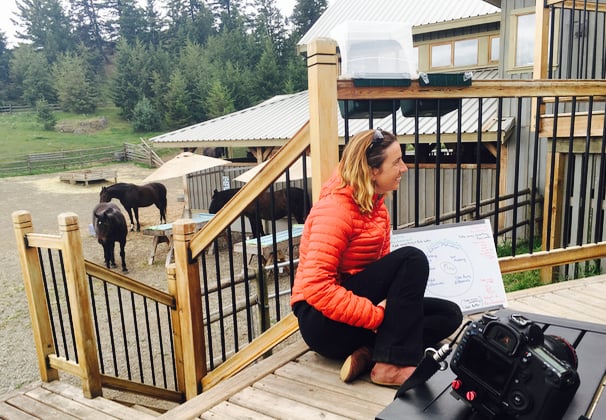
Elsa talked about the difference between using Extrinsic Motivation with your horse (pressure/release, whip, flag, etc.) and Intrinsic Motivation. Intrinsic motivations include things like matching your horse’s energy/tension level, moving your feet in the same way/direction as your horse’s feet, looking where they’re looking, matching their interest (in hay, grass, etc.).
Matching actions or matching states with your horse will result in you joining your horse and moving into FLOW together. This is what my horse Zorra invited me to do when she taught me the Stillpoint Practice.
For this day’s exercise, Elsa invited us to draw a horse’s name and see if we could find flow in all zones of the horse. My horse for this exercise was a warmblood mare named Prima:
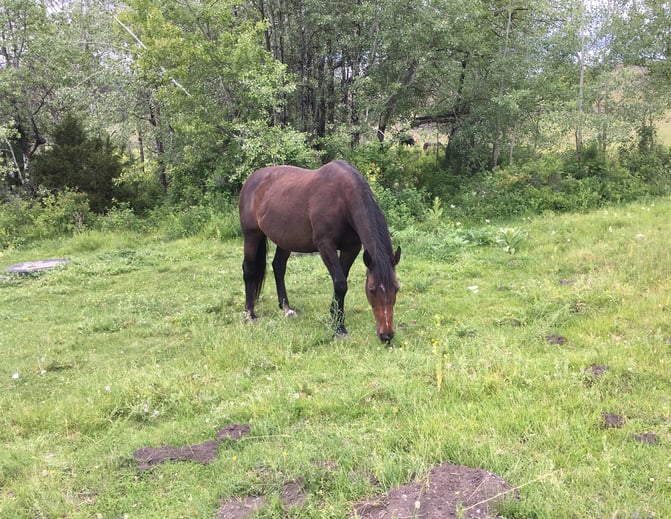
Once we received our horse, we were to experiment with standing/walking with the horse in each zone of their body:
- In front of the horse
- Behind the horse
- Near the left shoulder
- Near the left ribs
- Near the left hind
- Near the right shoulder
- Near the right ribs
- Near the right hind
See or notice where the horse is sticky, or resistant.
How close, or how far can you go? – find where the horse is comfortable in each zone.
Then push just a wee bit into that comfort zone. See how it feels. See how the horse responds.
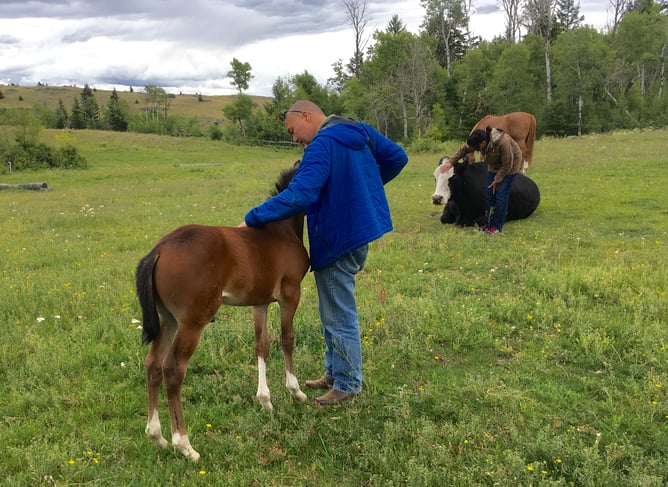
My results
Prima was pretty comfortable in all zones of her body, near or far, except for the “mounting spot” – you know, that spot near her left shoulder where you stand and put your hand on her neck just before you mount. But once I said to her, “Don’t worry, I’m not going to get on.” Her tension dissolved.
The only other spot that she (and I) didn’t feel comfortable was when I was directly behind her, in her blind spot. But as soon as she moved her neck even slightly around (as she grazed) so she could see me, all became soft again.
Interesting for me to note, was that when I was standing about 2 feet away from either hind side, I felt very uncomfortable, even though Prima was fine. This is because I have worked with some angry/aggressive horses and that is a great spot to get kicked. Even though my mind knew I was safe, my body had it’s own ideas about the risk I was taking!
This is a great exercise to do with your horse as they are out grazing in their field, or even standing still munching hay. Not only because you get to notice things you might have missed, but because it is a great way to connect with your horse. To show your horse, “Hey, I’m really listening to you, I’m feeling into you, and I’m noticing every vibe, flinch, movement, etc. that you make.”
When any being feels truly seen or heard, it creates a new level of trust and bonding in the relationship.
Take it even further
Once I had mapped Prima’s (and my own!) sticky spots, I decided to take it even further and experiment with the angle of my body.
For example, maybe she felt fine when my body was directly facing her ribs, but how about when I turned 15 degrees, or 45 degrees and angled my body towards hers? Or vice-versa? Did that turn an observation into a pressure? Horses are so subtle that even a micro-adjustment can convey a different meaning and evoke a different response.
I found this exercise just fascinating and am looking forward to playing it with each of my horses at home!
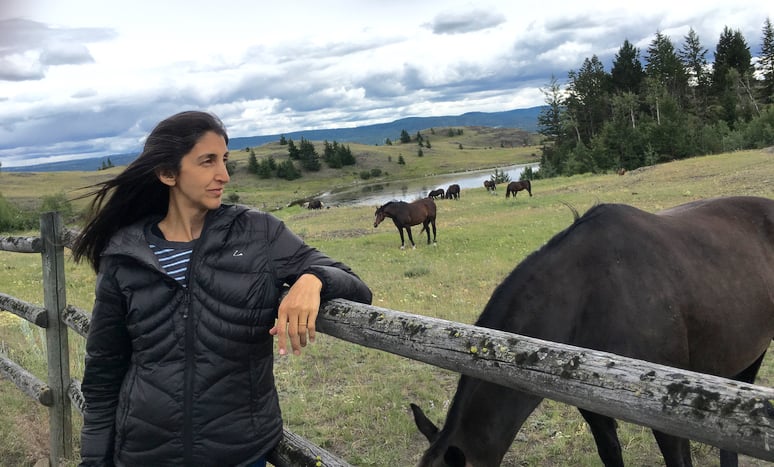

Jini Patel Thompson is a natural health writer and Lazer Tapping instructor. She began riding at age 2 in Kenya, and got her first horse at age 8 in Alberta, and so continues a life-long journey and love affair with these amazing creatures.





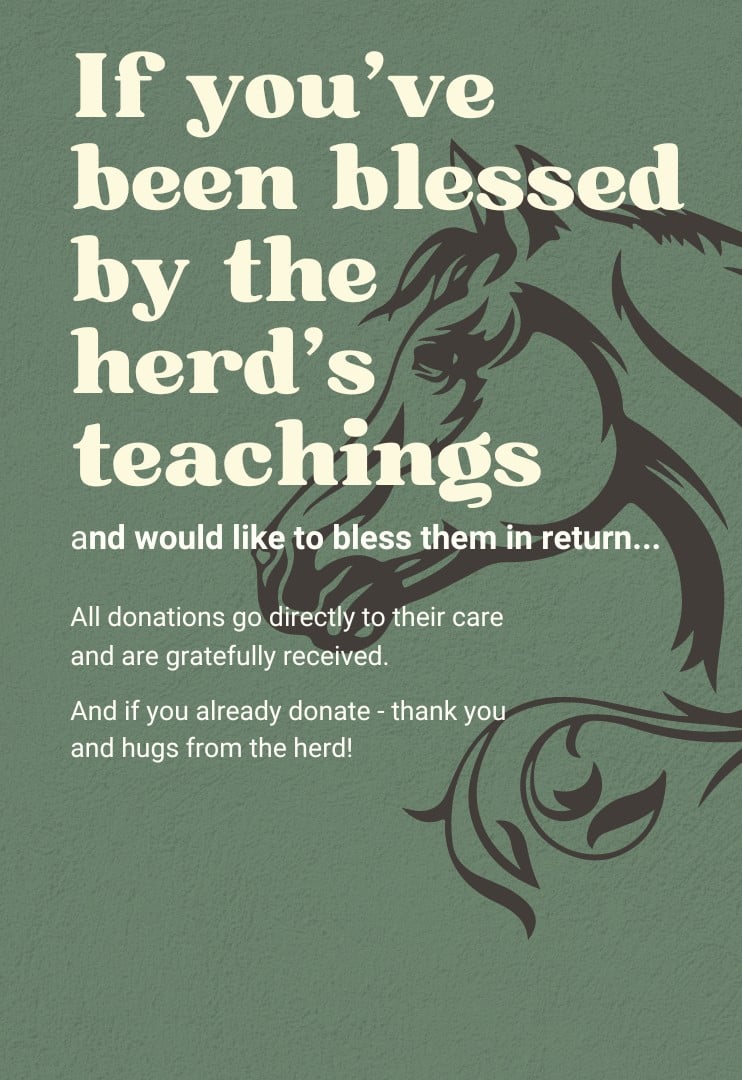
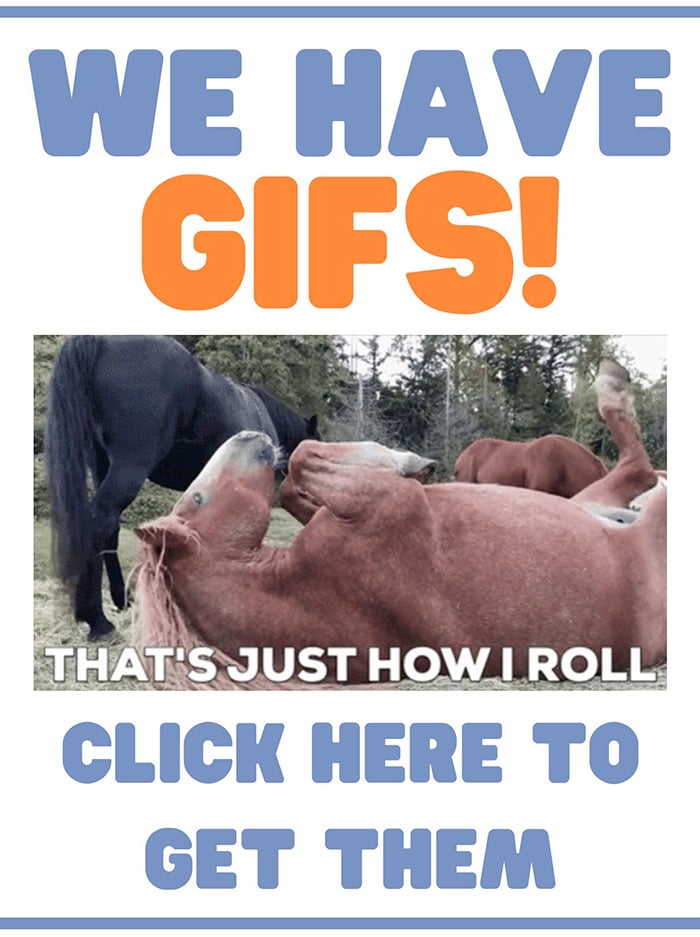
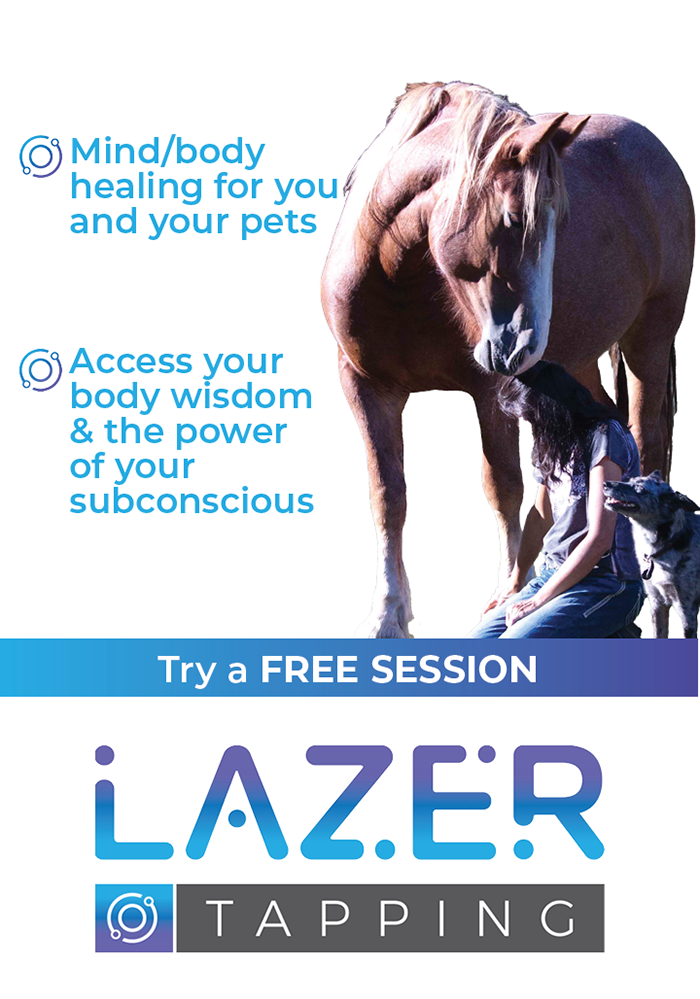
Thank you for interesting idea! I will try it for sure, just wondering… If the horse moves away (becuase the herd move or he is more intrested in grazing than me) – does it mean it was the ‘bad’ spot I was staying or he is simply bored? I know I will be thinking ‘he doesn’t want to be with me’ :/
Hi Zuza, if that happens, you just re-test the same spot/distance and see if it happens again. If it happens 3 times, then it is not the horse moving with the herd etc. but a signal that the horse is not comfortable with having you that close/far to that part of their body. Maybe there was a trauma there? Maybe a past owner/rider/trainer did some noxious things, maybe there is an injury (or past injury)? Then you can move into listening to your horse:
https://www.listentoyourhorse.com/how-to-talk-with-your-horse/
Ok thank you! 🙂 BTW I was reading your blog for all night I must say and I’m overwhelmed – thank you thank you thank you – for sharing your thoughts, wisdom, skills, giving ideas. It resonates with me so perfectly, I can’t wait to start trying that kind of communication with my horses. I was longing for something like that for some time, now I found the missing piece, I know where to move on. THANK YOU <3
Oh that is so wonderful to hear Zuza! And you are so welcome. We’d love to hear what happens with you and your horses as you shift into this new space. By the way, I went to your website and I LOVE your art boxes – just gorgeous! p.s. I know typing on a phone easily leads to mistakes, so I just edit the obvious ones – no worries!
Thanks! i’m glad you like my little art craft 🙂
Lovely description of what I think of as getting into the zone with another. It works equally well with cats, dogs, humans and wild life. This is mindfulness in action. When we shape our connections with others based on sensing our shared world through their perceptions, an energetic channel opens that heals and informs all involved. It helps us humans to perceive the reality of ‘we’re really all one.’
I totally agree!